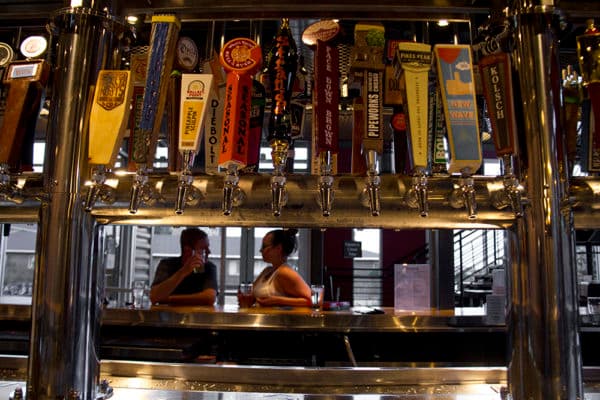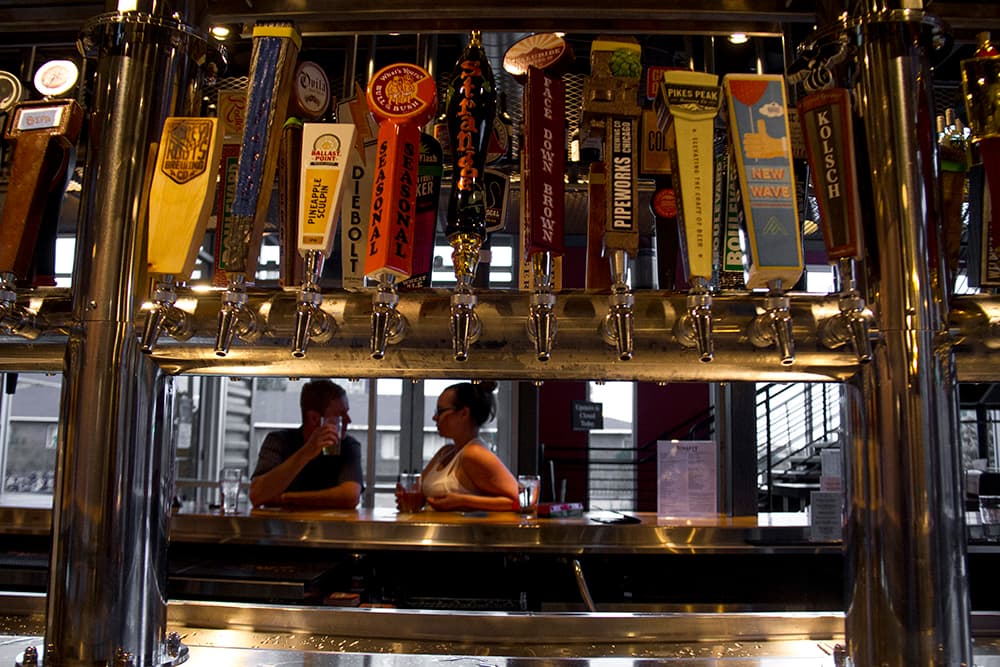
If concerns about your wallet and liver weren't enough, calorie counts could be the next thing to make you pause before ordering another beer.
America's largest beer producers will start listing calories, carbohydrates, protein, fat and other nutritional information on their products as part of a new initiative from the Beer Institute.
The Washington, D.C.-based trade association announced its Brewers’ Voluntary Disclosure Initiative on Tuesday and hopes beer drinkers will start seeing the impacts immediately.
Beer giants Anheuser-Busch, MillerCoors, HeinekenUSA and Constellation Brands have agreed to participate in the initiative. The Beer Institute also has buy-in from New York-based North American Breweries and Portland-based Craft Brew Alliance.
Together these companies produce more than 81 percent of the volume of beer sold in the U.S., according to the Beer Institute.
"Beer is the most popular alcohol beverage in the United States, and I look forward to brewers and importers including a serving facts statement along with disclosing all ingredients in their products,” Beer Institue President and CEO Jim McGreevy said in a statement. “Providing meaningful information will ultimately empower the consumer when making decisions regarding the beer beverage of their choice.”
The Beer Institute hopes to have participating brewers and importers achieve compliance across their product lines by the end of 2020. Their plan might not be the right fit for everyone in the industry.
The Brewers Association, a Boulder-based trade group for craft breweries, worries labeling every beer product could hurt its members.
"BA members already invest substantial time in complying with extensive federal regulations so that consumers can make informed choices when purchasing beer," said Bart Watson, chief economist for the Brewers Association.
"As such, we appreciate the Beer Institute’s efforts to support additional nutritional transparency, but also recognize that the approach the large brewers have taken may not be feasible for smaller brewers, many of whom offer dozens of small-scale, seasonal products every year."
The Brewers Association is working separately with the U.S. Food and Drug Administration and U.S. Department of Agriculture to create nutrient standards for styles of beers -- rather than individual brands.
For example, the USDA would assume all India pale ales have a certain range of calories, fats, proteins and other information. That information would be listed in the USDA's Nutrient Database and not necessarily on craft brewers' cans and bottles.
Odell Brewing Co. is the only Colorado craft brewer listed as a member of both the Beer Institute and Brewers Association. The Fort Collins-based company didn't immediately return an inquiry about if it will participate in the initiative.
Business & data reporter Adrian D. Garcia can be reached via email at [email protected] or twitter.com/adriandgarcia.
Subscribe to Denverite’s newsletter here.













